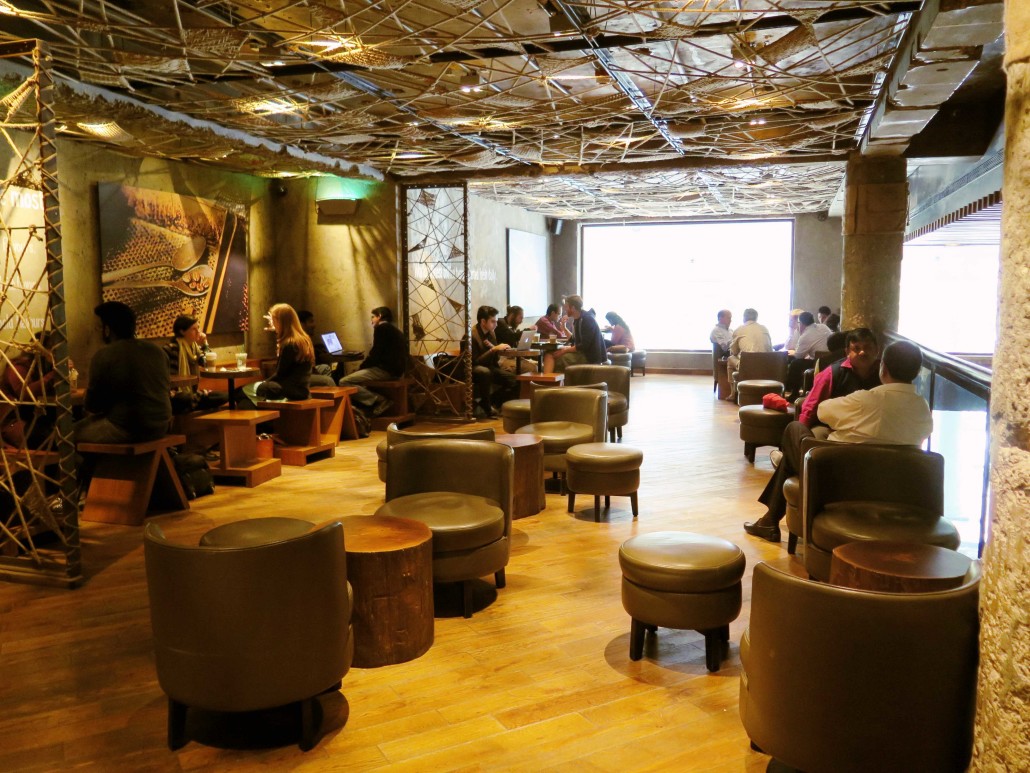Jack Nicklaus quoted, “There are always new places to go fishing. For any fisherman, there’s always a new place, always a new horizon.”
While we may associate certain places with symbols of social status and class privilege it becomes important to understand that no matter how much we continue to run behind these external symbols it is the qualities that lie within us that determine our happiness and mental peace in the long run.
Why do people pleasurably throng to places like Starbucks, Café Coffee Day, J W Marriott, Shangri-La Hotel, Vivanta By Taj and so on? Why do the same zeal, zest and pompousness cease to exist when they visit a local café for grabbing a bite and a cup of tea? Hundreds of people are seen putting up photos on social media every day when they hang out at prestigious places, and this seemingly benign act is seen as being in vogue or being cool.
Do people think that it is beneath their dignity to eat out at other so-called “shady” places, as youngsters generally call it? The youth appear to experience the adrenaline rush when they visit posh places. When they update their status on Facebook or Instagram regarding the same, when they get hundreds of ‘likes’, behavioral scientists contend that the neurotransmitter dopamine is released, and hence it creates a feeling of pleasure. Is this in a sense, false consciousness? Or is it because of the elegance, hospitality, a sense of goodness and by virtue of the rich consciousness of the elite intellectual company that one can ever so often find in such hotspots? All said and done, we cannot belittle the smaller businesses.
We are now in the post-postmodern era, which refers to a wide-ranging set of developments in critical theory, philosophy, architecture, art, literature, and culture which are emerging from and reacting to postmodernism movement. According to postmodern philosophy, our society is in a state of constant change. Post-postmodernism rejects postmodernism stating that the views and themes during that era stem from a victim mentality which tends to induce an agnostic-like skepticism in the overall scheme of things.
Post-postmodernsim is about social subjectivism, the belief that reality is not a firm absolute, but a fluid, plastic, indeterminate realm that can be moulded, in whole or in part, by the very consciousness of the perceiver— that is, by the perceiver’s whims and fancies. While considering this debatable topic in mind, it is relevant to bring into the discussion the concept of the simulacra and simulation. French sociologist, philosopher, cultural theorist, political commentator, and photographer Jean Baudrillard remarks that there is no longer any distinction between reality and its representation; there is only the simulacrum –an image or representation of someone or something. Thus, the prestigiousness of luxurious places is all in the perceiver’s mind or consciousness.
In today’s urban world, the simulacrum is all that matters in the end. In the scenario of citizens wanting to be seen at “cool” places, the connotation attached to those places is the product of cultural cognition, peer group behaviour and advertising, amongst other things. The ephemeral nature of the periodicity of such social behaviour is something to be considered. Not all days are bright, sunny and leisuresome and the present generation has a cartload of activities to focus on. In a sense, this behaviour exhibited by many urban individuals will be passé in the decades to come by. Jean Baudrillard in the book “Utopia Deferred: Writings for Utopie(1967-1978)” states that if the “ephemeral” represents the truth of modernity , if even it represents the future formula for a rational and harmonious society, it still takes an entirely different sense in the present cultural system. He further adds that culture plays on the two distinct terms: the ephemeral and the durable, of which neither can be made autonomous. In the socio-cultural class system, on the contrary, this relation breaks into two distinctive poles, of which one –the ephemeral –becomes autonomous in a culturally superior model, returning the other to its “obsolescence.”
No matter where we go, the purity of the consciousness that we carry with us is what matters. When we change at the thought level, our emotions change and hence it leads to a behavioural change. What the country needs are more intellectuals. Intellectuals who are ready to turn rebels when something is not right in a particular place and the courage to stand up for themselves. The quality of places is largely determined by the quality of the cognitive, conative and affective aspects of the human resources present in that place. What the country needs is a cognitive revolution – changing one’s thoughts to bring about change in the socio-cultural milieu.
In order to facilitate such a change in consciousness, we need more quality and fine universities in the nation like Indian Institute of Science, Jawaharlal Nehru University, Indian Institutes of Technology and Management and so on. Generally speaking, there are many universities which are in dire need of upheaval. What Jean Baudrillard says in his book “Utopia Deferred” strikes a chord with the aforementioned contention. He says, “The university is in decay: non-functional on the social plane of the market and employment, lacking cultural substance or a point to its knowledge.” Baudrillard says elsewhere in the book that only a pataphysics of simulacra can deliver us from the system’s strategy of simulation and from the impasse of death wherein it encloses us.
Thus, we must all go fishing, to a new place, to a new horizon, in order to reach the zenith to change and metamorphose from the inside. Flannery O’Connor meaningfully sums it up philosophically in her quote which says, “Where you come from is gone, where you thought you were going to was never there, and where you are is no good unless you can get away from it. Where is there a place for you to be? No place… Nothing outside you can give you any place… In yourself right now is all the place you’ve got.”
Samhita K is Research Associate at National Institute of Advanced Studies, Bangalore.











